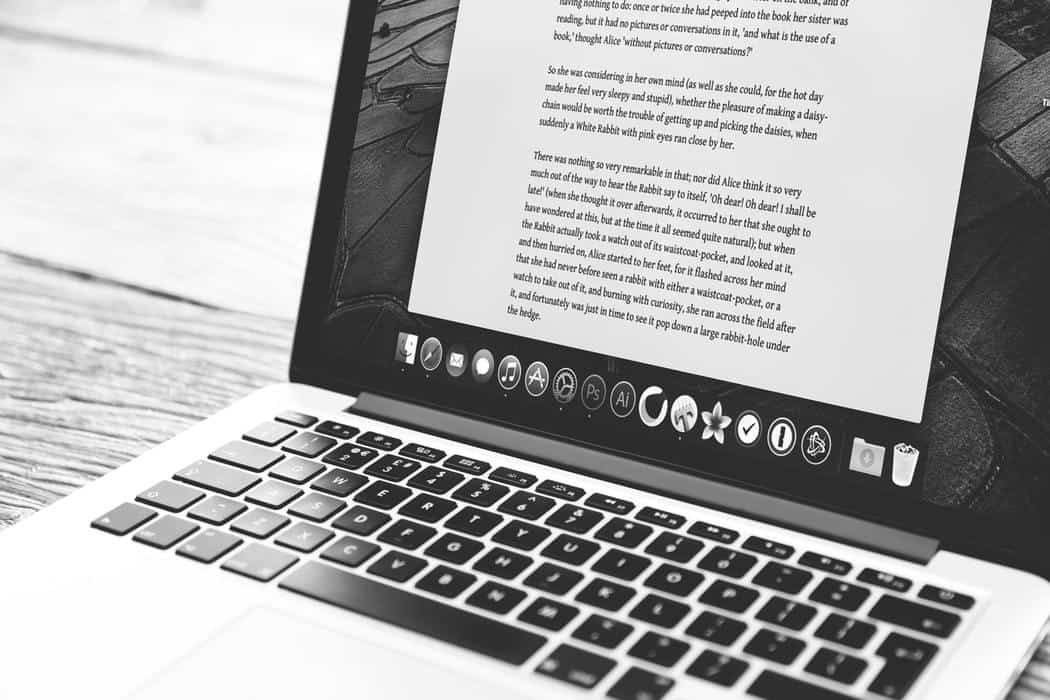A few years ago I went from zero to earning £1000+ per month passive income from writing. I now earn a lot more than that, but this essay is aimed at beginners. Here I describe how I first went about making money just from writing.
First, I decided that I no longer wanted to be a corporate drone. I needed to become independent. And I had to think about what different things that I could possibly that could be monetized so I could create a new career for myself.
The obvious area for me to get into was writing because I have written since I was a small child, and writing has always been something that I am passionate about.
However, writing has become increasingly difficult to make a living from in the UK and across the Western world over the last decades for a number of reasons.
For one thing, the rise of the internet has meant that a lot of writing that was once paid for handsomely by publishers is now provided freely. The obvious area where this takes place is journalism.
It was once possible to make a very good living from journalism (Winston Churchill, for example, got very rich off of his journalism). But with the rise of the internet the business model of publications has changed.
In the past titles such as The Guardian would make the bulk of their money from circulation – that is from the cover charge. But now, because more and more people are using the internet to consume news, such papers make their cash from advertising.
Overall, the revenues generated by the the big newspapers and magazines is significantly less than it was 15 or 20 years ago. And that being the case budgets for journalism have shrunk accordingly.
The other thing is that the kind of books that I wanted to write – literary fiction books – were becoming less popular. Yes, we see surveys that indicate that readers are consuming more and more books per year. But I don’t believe that to be the case across all genres.
My impression is that readers are consuming more popular fiction, autobiographies and nonfiction works than before. But they are not buying serious literary fiction to the extent they were in the 80s and 90s when I was growing up.
It became clear to me that the type of writing that I wanted to do – in the vein of the esoteric writers I had loved as a child like Franz Kafka, Mann, Sartre in his novels, etc – would not make me a living in the early 2000s.
In fact, it would be very hard to get that kind of material published by a traditional publishing house at all.
Literary Snob
Now, I am not without literary snobbishness. My father has worked in publishing all his life. I have loved books all of my life. As a result I am familiar with all of the top publishing houses both in the UK and overseas. And It was always my dream to have a book published by Faber & Faber, the publishing house for which T.S. Eliot, the renowned poet, once worked.
Perhaps in the 90s when I was coming into adulthood something like this might have been possible. At that time literary novelists like Bret Easton Ellis and Jay McInerney and others were still huge global names making lots of money for their novels. Martin Amis too famously secured an advance of £500,000 for his novel The Information, much of which was reputedly spent on fixing his teeth.
Unfortunately for me, that final golden age of literary fiction coincided with a time when I was drinking to excess and also using narcotics of various sorts. These substances severely curtailed my ability to produce anything of any literary value.
It is a fiction that intoxication assists the writer. In fact, while it may help out in the inspiration phase, it does nothing at all for one’s ability to execute. And what every writer knows is that if you want to produce books you need sufficient discipline and focus to sit down at the desk for many hours at a time and type. Under the influence of narcotics and drugs I simply did not have that discipline or focus.
By the time I achieved sobriety in the early 2000s the publishing landscape had changed significantly. As I have said, the public’s appetite for literary books had diminished. Besides, I had embarked on a different career. I was working for a famous British newspaper brand – not as a journalist, but in the commercial department, selling advertising.
Advertising sales appealed to me in part because sales had always appealed to me. My father was in sales at first, and I was encouraged by the stories of writers like Will Self who had begun his own career in ads.
However, I was to find that the profession – while lucrative enough to enable me to purchase two properties, one in London and one in Berlin – was not one I enjoyed. Nor was it one that utilised my literary talents sufficiently. But once you have started on a particular route, it is not always easy to change track, particularly as you progress from your 20s to your 30s and beyond.
I moved back to London from Manchester in 2004. In my early days in the city I changed jobs a couple of times. I left the newspaper that I had first worked for and went on to join another outfit. I stayed in that job for a year before moving onto a third behemoth of the British newspaper scene where I remained for a decade. I won’t name the publishing house in question but it’s worth mentioning that they paid handsomely, and it was here that I earned enough money to ultimately leave the profession.
Youth
People ask why I didn’t use my position at these newspaper companies to enter into journalism. Well, there are a couple of reasons. Firstly, for a very long time I just didn’t have sufficient interest in politics or current affairs. Today, of course, it is a different matter. But in my callow youth I was myopic and and solipsistic to a degree that precluded any desire to write about such matters. My only interest was in writing about myself and the things that interested me at that time. These were activities such as attending nightclubs, entering into short-lived relationships, and travelling.
While some writers undoubtedly did cover such topics it seemed impossible to me to find a way to gain sufficient remuneration for this kind of work. Sebastian Horsley, the famed Soho heroin addict, might be commissioned to write articles about his debauched lifestyle for major newspapers. But he was a man who had societal connections and indeed, money to burn. I was a ne’er-do-well who had only recently relocated to the capital. I did not have the standing or the network to persuade someone to pay for my writing.
But my luck was in. Right now the Internet was in its infancy, but it was to develop hugely over the next few years. And that would change everything.
Another reason I was uninterested in journalism that was because my true passion lay in writing fiction. For reasons I have already discussed I couldn’t see a way to make fiction work for me. So I was in a quandary.
But the internet would save me.
Beginnings
I made small forays into writing for a wider public than just myself, my family and close friends in the early 2000s when I began to write for a number of very high-profile online websites.
Again, I choose not to name these here because I wrote under a different pseudonym and I don’t like to confuse the stuff that I’ve published. Let’s just say that I wrote for a very famous newspaper website; a very well-known men’s grooming and lifestyle brand; and an American youth culture and lifestyle site that has now gone on to be very successful in the TV market.
For the first time ever I was writing about things I was interested in, I was gaining an audience and – most importantly of all – I was getting paid too. Not enough for me to leave my job – that would come later – but enough for me to feel a sense of achievement. Finally my writing was reaching people and they were paying attention to it.
Confidence
With experience comes confidence.
Now, my early life in Manchester was a bit of a shitshow. I didn’t complete my education, and I worked in a number of nightclubs and bars before getting into the ad-sales work that I have described.
But in London I was ambitious. So I finished my degree in English literature, achieving first-class honours. Then I did a masters in creative writing at the University of London (I gained a distinction).
Today it is fashionable to bash college as an aspiration for young people and this is not a school of thought I necessarily disagree with. However, regardless of where you stand on it, that postgraduate degree in writing really was the making of me.
Why? Because it’s super-charged the confidence that I mentioned before. Writing for class and having work discussed by that class every week made me see my strengths as a writer. It also made me aware of how much I had to do to catch up with others. Competition with a couple of students, great writers who I became close friends with, really forced me to up my game.
I also had a short story or two edited professionally and published in the university’s annual magazine. Off the back of this I was approached by a couple of literary agents. Nothing came of these approaches but they did help to strengthen my confidence once again.
The thing about writing is that it is very personal and showing your writing to other people, particularly when you hope to get paid for it, is a daunting prospect. The only way to get over this is to become resistant to criticism by putting out as much content as you can. By writing for those websites and having my work assessed by a class, over the course of a few years I became significantly less afraid of exposing my work to the world. ]
And that is precisely what you have to do too if you want to go professional with this.
Off the back of my creative writing degree, I wrote a (flawed) novel which I shopped around to a number of literary agents. While some were full of praise for my efforts, and were encouraging, none were willing to take on the book that I had presented to them.
So there it was. I was now confident that I had some writing ability, but I had an unpublished novel city in my bottom drawer, and I was not making a full-time income from my journalistic efforts.
What to do?
It was at this point that the idea of self-publishing came into my mind.
£1000 per month passive income from writing
The idea of self-publishing had always been very low down on my list of priorities. Vanity publishing – that is, when a writer pays to have his book published by a company likely set up for the purpose of fleecing luckless scriveners, has always been anathema to me.
It was never a route that I wanted to go down myself.
But I had been reading about writers who, by putting their work onto the emergent Amazon Kindle platform, had started to make great incomes. Granted, a lot of these writers were working in genre fiction – romance, erotica, crime etc. But there was also a big market for self-help books, and certainly for guides to dating.
This I knew because at the same time that I had become involved with writing for online magazines, I had also been initiated into the world of London dating coaches. Several of these would go on to become friends, but I was already aware that they were making good money from the ebooks, PDFs and indeed Amazon books that they sold off the back of their marketing efforts.
Surely if these people could do it then I could make a success of it too?
I had recently began contributing to a very prominent American website created by a well-known dating coach. I would write a weekly articles on seduction, confidence, dating and so on. These articles started to gain traction with readers and I slowly built up a name for myself. All of a sudden I was getting guys emailing me asking me for advice. Each of my articles would received hundreds of comments. Of course, not all of these were complementary, but the level of engagement was in itself a sign that people thought I had something of interest to say.
Off the back of this I realised that it was possible for me to start making money from writing about dating and relationships and so I embarked on my first book The Seven Laws of Seduction in 2014. It was eventually published on Amazon in 2015. At first the money it made was not huge, but sales were frequent. I noticed that every time I wrote a new article, or I posted on social media, the book would sell more copies.
Other commitments meant that I didn’t release another book for some time afterwards, but a year or so later when I decided to take my self-publishing business seriously, I published a second book, a collection of my articles and essays from the past two years. That book sold well, and it boosted sales of the first one.
I then put out a book with the somewhat shocking title of How To Be An Assh*le. This was an examination of the 48 Laws of Power by Robert Greene and the dark tetrad personality. It was meant as a tongue-in-cheek look at how ‘the nice guy’ – such as myself – might incorporate elements of these darker personality traits in order to improve his social performance.
Perhaps because of the title, and the well-designed cover that I had created for me by a talented artist in the USA, the book sold very well. All of a sudden I was making over £1,000 per month from my writing.
That may not sound like a lot, but to me at that time it was incredible.
And if I could make £1,000 per month there was no reason why I couldn’t make £10,000 per month or more if I wrote enough and if I marketed in my work in the right way.
Building an Audience
So it was a combination of elements that led me to becoming a professional writer. For a start, I learned to embrace self-publishing. There was no sense in being snobbish any longer. The opportunity for me to get published writing experimental fiction and to actually make a living from it had died with the last century, if it had ever truly existed at all.
If I wanted to make money I would have to self-publish, at least at first.
Secondly, I finally realised what I should have seen all along which is that if you want to make money from writing you have to write what readers want to read.
Once I settled on a subject matter that I was sufficiently enthusiastic about to create book-length content on – in this case dating – then I was well on my way to becoming a successful writer – or a writer who gets paid, at least.
Of course, I’m not saying that relationships and dating are the summit of my writerly aspirations. Not at all. However, I had to start somewhere, and these books enabled me to do just that.
As I have gone on in my writing and blogging career, I have written about other topics such as addiction, family issues, business, writing itself, and so on. I have also always sought to incorporate memoir into my writing, not only so that I can share personal stories that will resonate with readers, but also because it gives me a degree of literary satisfaction to recreate in prose things that have happened to me in my life.
Right now, having built up something of an audience, I feel freer to write what I want . . . within reason. And so I am currently working on fiction once more – a novel which I will complete as my next project.
The book is based on certain social themes that I have observed around me over the last few years, and has been significantly informed by conversations I have had with readers and with fellow content creators all across the world on social media. I won’t say anything more about it at the moment except that it is currently in the outlining phase and I am very excited about it.
Building an audience is essential for any new writer in today’s landscape. But once you have have amassed it – and it doesn’t need to be huge, even 100 people is better than nothing – then you can start to the control the direction of traffic. That is, yes you are still there to cater to your people. But if they have brought into you sufficiently then they should also be interested in where you want to take them.
For example, I have followed Depeche Mode for many years. And if Depeche Mode announced that they are going to release an acid jazz album then I would certainly buy it, despite the fact that I have no interest in that genre. Why? Because I trust the band to present high-quality work and I believe their aesthetic interests align with mine. As a result, I am willing to follow them into unfamiliar areas.
The same is true for the writer. Once their audience is assembled, then it is their right and duty to create work that not only appeals to their base, but also expands the relationship as well.
We can get into the nuts and bolts of self publishing in another essay. Indeed, many people have created a whole raft of content on this, like Joanna Penn with her excellent Creative Penn podcast.
The most important takeaway here is that if you want to make a living writing you absolutely can. However you need to let go of any preconceptions you may have about yourself as a writer. You also need to be willing to experiment and to take risks. It was only when I smashed through paradigms that had long existed in my mind that I was able to start getting paid for doing something I love.
I hope that you found this of interest and that perhaps it will give you some encouragement for your own writing career. Do let me know your thoughts in the comments below.
To receive a daily email filled with tips and advice from Troy on dating, writing, entrepreneurship and more go here.
Get nine of my greatest game / dating books for just $35 in a digital download calledRENEGADE DATING BLUEPRINT here now.
If you urgently need to get your dating and sex life sorted, and you’re sick off the ‘all-filler-no-killer’ info out there, then APPROACH HER LIKE CHAD is for you. And you know what’s even better? Right now it’s only 3.49 on Amazon
Read my essay on the book here.






My first foray into the ‘Sphere was when I ‘stumbled’ onto your page Troy. It was part of the inspiration to start my own site – and to write. Take that for what it’s worth. Keep up the good work Mr. Francis… it DOES inspire us.
CB
Thanks very much man – that’s really great to hear! Keep up your great content! Cheers, Troy